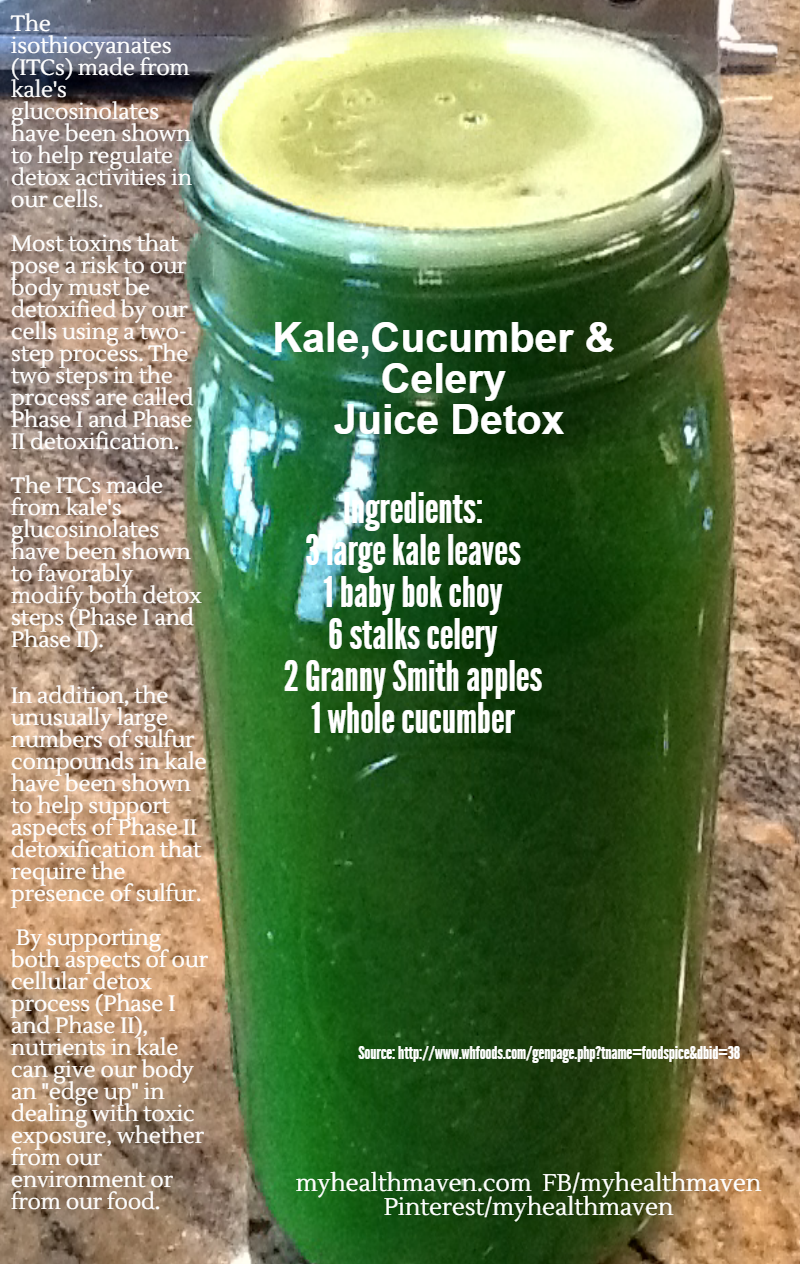Many people struggle with chronic and sometimes long term health issues. We don’t eat as well as we should, we get exposed to toxins on a consistent basis. We keep ourselves busy with long work hours, extracurricular activities for ourselves and our children, and we wonder why we feel sick and run down.
I don’t know what your lifestyle is, but I’m hoping that you consume only organic foods, drink clean filtered water, avoid processed and canned foods and take digestive enzymes and probiotics. I’m also hoping that you do incorporate some gentle detox protocols into your daily life or at least some type of cleanse a few times a year. If not, these are things to discuss with your health care practitioner.

Cleanses
To be honest, I don’t do “cleanses”…intensive protocols to detox the body. I prefer to incorporate gentle detoxification into my daily life. What does that mean? For me it means drinking wheatgrass and fresh juices daily, taking homeopathics to help my body detox, taking weekly detox baths, etc. For many individuals this is an easier gentler way to stay healthy. But some people have a difficult time making daily changes. Sometimes you don’t have a choice. Your body takes control and makes the decision for you. Which is exactly how I ended up making so many changes.
I had waited too long to care for myself. I ate conventional, non organic foods for many years, made horrible health choices (such as amalgam fillings, root canals, dyed my hair on a regular basis, etc.). My body was too toxic, too polluted to continue on that path. I am hoping that you will not make the same choices, that you will not wait too long. I am hoping that you will become proactive in your own health care.

Become proactive
Step 1-Become a student of your own health
The first step to recovering your health is to become a student of your own body. Observe and note how your body feels and reacts to various foods, supplements, prescriptions, etc. Keep a daily journal in order for you to get a clear picture of what is going on, this info will also be very helpful to your doctor.
In the journal note the following things:
-What you eat and drink throughout the day, be sure to note any reactions such as bloating, diarrhea, pain, etc.
-All supplements, prescriptions and OTC medications you take. Jot down any reactions as well.
-Note any symptoms with your body such as rashes, pain, skin changes, etc.
-Note any food cravings, this can tell you a lot about nutrient deficiencies and potential health problems.
-Take note of any aches or pains, where they are and how they feel.

Step 2-Find a doctor to work with
Recovering your health means finding a practitioner you can work with. Finding the right person takes time and may require you to interview a number of people before you find a good match. Don’t be afraid to ask questions of your practitioner. You are paying for the consultation, it is your body, your time and your money. The relationship between you and your caregiver is a partnership, not a dictatorship. If you don’t like the answers or attitude of your practitioner, go elsewhere. If you don’t understand something, ask for clarification. If you receive a concerning diagnosis, ask for other possibilities of illness and optional treatments. Ask for a second or even third opinion from other practitioners.
After receiving a diagnosis, go home and do your research. Educate yourself on whatever the topic is. When possible talk to others in the same situation and ask them to share their successes and failures. Ask the practitioner for references of patients they have treated, so you can learn about their experiences.

Step 3-Be patient
Recovery takes time. You didn’t get sick overnight and you’re not going to recover overnight either. Based on your health history and the decisions you and your practitioner reach, there may be medical tests needed to rule out or clarify potential health issues. There will also be a period of trial and error, where supplements or protocols will be initiated and fine-tuned based on your response. Depending on your health or illness, you may have to start with minimal doses of supplements or prescriptions.
Remember to trust yourself. Observe how your body feels and reacts to various foods, supplements, prescriptions, etc. No one knows your body better than you do. If you react to a supplement or protocol, make note of it in your health journal and be sure to tell your practitioner. They may tell you that their other patients are fine with this protocol or supplement. Gently, but firmly remind them that you are an individual, and what bothers one person may not bother another. If a protocol or supplement is making you sick, than it needs to be eliminated or cut down to a tolerable level for you.
Don’t be pressured to make a quick decision. When dealing with a health condition, take the time you need to do your own research and consult with other practitioners. Unless it is an immediate life threatening condition, many decisions can wait.

In conclusion…..
We all want the silver bullet….the one thing that will cure what ails us, and we want it now. If I’ve learned anything about recovery, there isn’t a silver bullet, recovery takes time. If you’re chronically ill, you may have multiple symptoms that need to be addressed and relieved, as you work towards finding the root cause of your illness. Which is why it is essential to have a practitioner who will listen to you, understands your health situation and will work with you, at a pace that is comfortable for you both, as you journey on the road to recovery.
Wishing you the best in your journey to health!
Elisha








